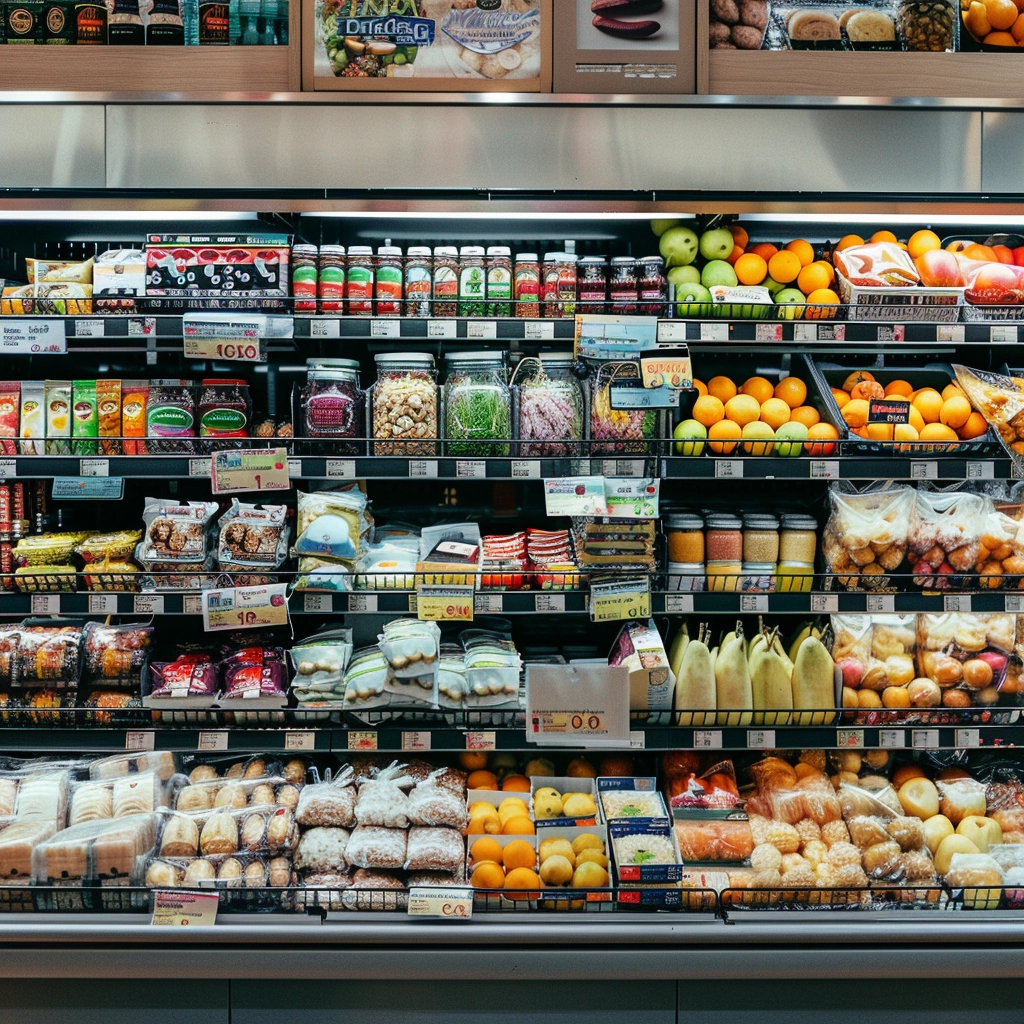In an era where every penny counts, discerning shoppers are always on the hunt for the cheapest supermarket to stretch their budgets further. With the cost of living on the rise, finding a supermarket that offers both quality and value has become a priority for many households. This article delves into the competitive world of supermarket pricing in the UK, spotlighting Aldi’s claim as the cheapest option and exploring how consumers can identify the best deals.
Cheapest Supermarket UK
The quest to pinpoint the cheapest supermarket in the UK involves understanding the various factors that influence pricing. From location and store size to product range and special offers, several elements play a role in determining supermarket prices. A comparative analysis of major UK supermarkets, including Tesco, Sainsbury’s, Asda, Morrisons, and Aldi, reveals intriguing insights into their pricing strategies and how they impact consumers.
Aldi: The Cheapest Supermarket?
Aldi’s reputation as the cheapest supermarket is underpinned by its unique business model and pricing strategy. By focusing on cost-efficiency, limited product ranges, and a strong emphasis on private labels, Aldi has positioned itself as a leader in offering exceptional value. Customer perceptions and market share data further illuminate Aldi’s standing in the supermarket hierarchy.

Comparative Analysis of Supermarket Prices
To objectively assess which supermarket offers the lowest prices, it’s essential to adopt a rigorous methodology for price comparison. Recent studies and findings shed light on the current landscape, offering shoppers valuable guidance on where to find the best bargains.
Which is the Cheapest Supermarket?
Determining the cheapest supermarket requires a clear set of criteria, including price, quality, and range of products. This section synthesizes research outcomes to provide a definitive answer to this pressing question.
Price Wars Among Supermarkets
The history and dynamics of price wars among supermarkets reveal how competitive pressures shape pricing policies. This competition not only affects the supermarkets’ bottom lines but also has significant implications for consumers and the broader market.
The Role of Private Labels in Price Competition
Private labels have emerged as a key factor in supermarket price competition. By offering quality products at lower prices than branded equivalents, supermarkets can attract price-conscious shoppers. A comparative price analysis of private labels versus branded goods offers insights into their role in driving down prices.
Online Grocery Shopping and Pricing
The rise of online grocery shopping has introduced new dynamics into supermarket pricing. This section examines how online prices compare to in-store prices and the impact of digital platforms on consumers’ shopping habits and expenses.
Impact of Seasonal Variations on Prices
Seasonal variations play a significant role in supermarket pricing, especially for fresh produce. Understanding how supermarkets adjust prices in response to seasonal changes can help shoppers make more informed decisions.
Consumer Strategies for Finding the Best Deals
Savvy shoppers employ various strategies to sniff out the best deals, from leveraging loyalty programs to taking advantage of coupons and special offers. This section provides practical tips for smart shopping in the competitive supermarket landscape.
Aldi’s Impact on the UK Supermarket Industry
Aldi’s expansion and growth have had a profound impact on the UK supermarket industry, prompting competitive responses from other players. This section explores Aldi’s influence and how it has reshaped market dynamics.
Sustainability and Price: Are They Compatible?
The growing consumer interest in sustainability raises questions about its compatibility with low prices. This section examines how supermarkets balance sustainable practices with the need to offer competitive pricing.
Technology’s Role in Supermarket Pricing
Technological advancements, such as pricing algorithms and self-checkout systems, are increasingly influencing supermarket pricing strategies. This section delves into how technology is shaping the future of pricing in the retail sector.
The Future of Supermarket Pricing
Looking ahead, this section predicts trends and potential new entrants in the supermarket industry, exploring how they could impact pricing and consumer choice.
Conclusion
In the quest to find the cheapest supermarket, shoppers must navigate a complex landscape of pricing strategies, market dynamics, and shopping habits. This guide has provided a comprehensive overview of the factors that influence supermarket pricing in the UK, offering valuable insights for those looking to maximize their grocery budgets. As the industry continues to evolve, staying informed and adaptable will be key to finding the best deals and making the most of your shopping experience.
FAQs
How does Aldi manage to keep its prices so low?
Aldi keeps its prices low through a combination of strategies including limited product selection, simple store layouts, efficiency in staffing, and a focus on private label brands over national brands. This streamlined approach reduces operational costs, which in turn allows Aldi to offer lower prices to its customers.
Is online shopping always cheaper than buying in-store?
Online shopping isn’t always cheaper than buying in-store due to factors like shipping costs, handling fees, and price variations between online and physical stores. While online stores may offer competitive pricing and discounts, the final cost can be influenced by additional charges or the availability of in-store promotions.
How frequently do supermarkets change their prices?
The frequency at which supermarkets change their prices can vary widely depending on the store, the type of product, and market conditions. Some prices may change daily due to dynamic pricing strategies, especially for perishable goods, while other prices might remain stable for weeks or months. Supermarkets may also adjust prices in response to promotions, seasonal demands, and changes in supply costs.


